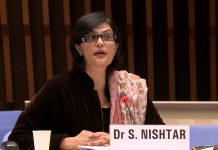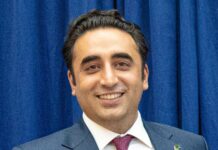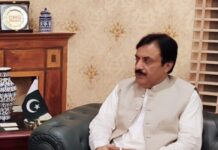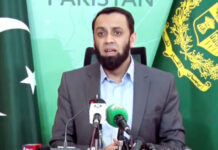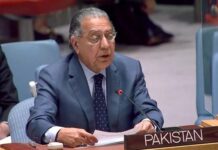
In his message on the World Science Day for Peace and Development, 2017, the PM said that synergetic collaboration across the whole society was needed. “The government, private sector, academia and scholars should all join hands for the advancement of our nation. I have great faith in our people and I am confident that by focusing on the education of our children and youth, and by strengthening the tradition of research and scholarship in the sciences, Pakistan will very soon attain its rightful place amongst the most developed nations of the world,” the PM said.
He said it is quite impossible to overemphasise the importance of the sciences in the modern world. “Science continues to be, more than ever, the primary currency of economic, political and social growth and expansion. Indeed, nations that neglect this much too obvious reality would soon be reduced to abject dependency,” he said.
Shahid Khaqan Abbasi said scientific discovery had been the fundamental driver of human progress, development and prosperity; and we can rightfully take pride in the fact that scientific inquisitiveness is amongst the most significant legacies of the Islamic world. “Muslim scholars kept the passion for scientific knowledge and inquiry alive even during the darkest ages of Europe,” he said.
He said that the recent remarkable achievement by young Muhammad Shaheer Niazi of Lahore, who had published a paper in the Royal Society Open Science journal at the age of 17, was a rejuvenating reminder of the immense potential of our people.
The PM said the theme for this year’s World Science Day, ‘Science for Global Understanding’, was indeed very apt. “Pakistan has much to offer to the world, and also has much to gain from other nations, in the area of science and technology. Pakistani solutions, particularly in the areas of healthcare, engineering and computer software, have come to be globally respected,” he said.
“Each year, new challenges are tackled through a scientific approach in public policy applications. In the last few years, for instance, Pakistani scientists and officials have teamed up to better manage the impact of diseases like polio and dengue fever. The recent phenomenon of smog in parts of the Punjab is yet another environmental challenge that our scientists are working on, and I am certain that we shall overcome this problem very soon,” he said.
Published in Daily Times, November 11th 2017.

